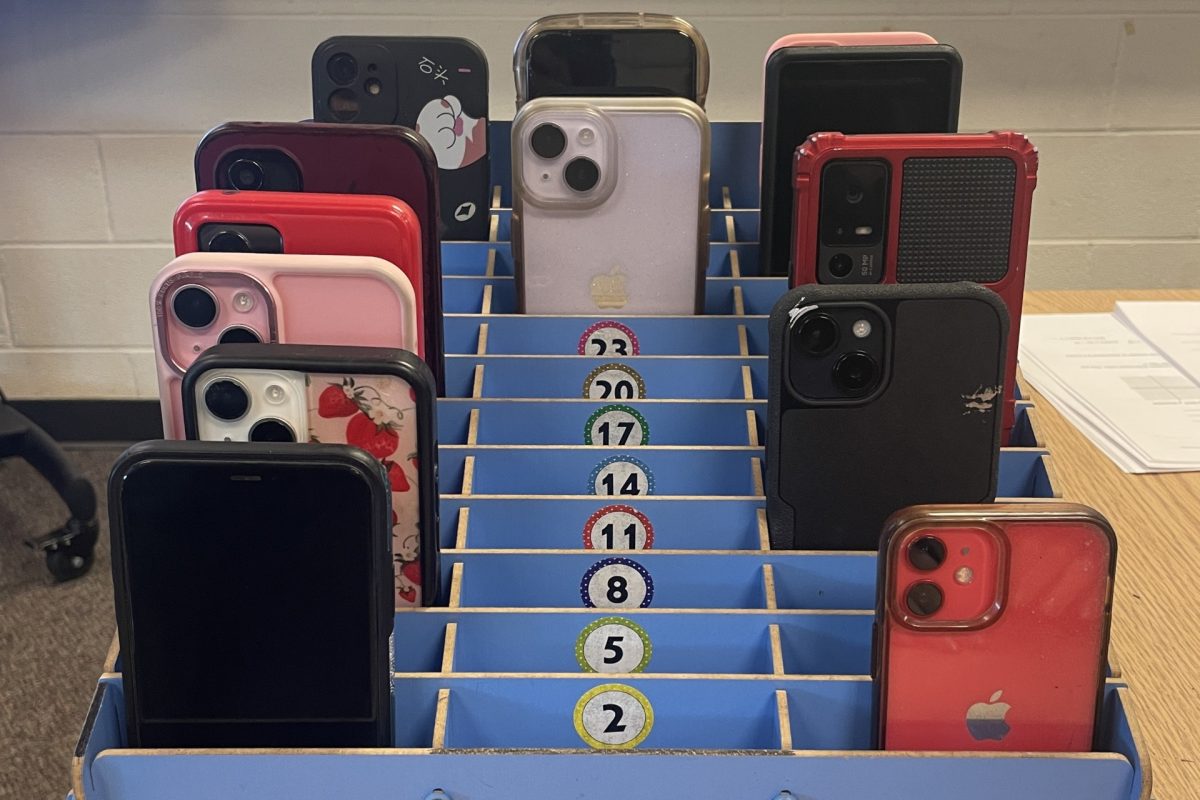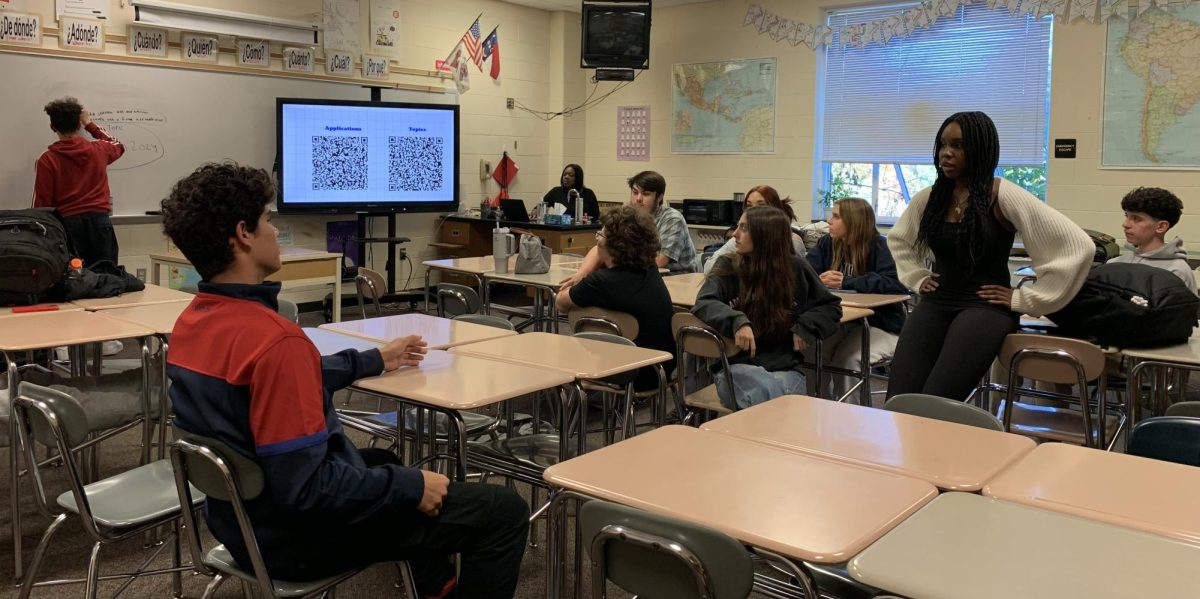Throughout the United States, schools are implementing new phone policies with Wakefield following suit in its new phone policy. This year, the newest policy enforces that students do not have phones on their person during classes unless permitted. Students and staff alike are reacting differently to the change, some more willing to comply than others.
Every year, Wakefield’s policies adjust to match the natural changes student culture goes through. For this school year, Wakefield shifted policies to control the growing use of phones in class. Currently, cell phones are banned from being on a student’s person in classrooms. Some people support the change, agreeing to ban phones, as they believe it has overall benefits. Steven Hill, Latin and history teacher at Wakefield High School, is one of the individuals who agree that the phone ban was a needed adjustment.
“It is easy to get distracted by all the joys of a cell phone,” Hill said. “[Students] are less distracted when they know there are consequences for taking out their phones.”
However, banning phones completely isn’t the only option. Others believe that restricted educational use is a better solution. Russell Williams, a physics and astronomy teacher, is more optimistic about the use of cell phones in the classroom.
“I think that sometimes using a cell phone is advantageous for classes,” Williams said. “I know for example some teachers give[opportunities] for cellphones to be used in the classroom.”
The use of phones can provide students with a sense of independence. Some argue that it’s important for students to learn self-management without a restrictive policy.
“Students have [phones], so I guess it is our job as educators to show them when the appropriate time to use them is,” Williams said. “At some point, you need to figure out what time is right and wrong [for your phone] without someone telling you.”
Some say the policy might not achieve its intended goals, despite the efforts of those who created and enforced it. Many students are not as willing to give up their phones. Sophomore Jacob Terbet, comments on people’s willingness to violate the policy.
“People [may] break the rules either way,” Terbet said. “[Enforcers] will do as much as they can, but people are still going to break the rules.”
With the unwillingness of students, it can be concerning if this policy is a lasting fix. Many are wondering if it will have the intended impact that it’s seeking. Some fear it may fizzle out as the year goes on. Zoey McPherson, a senior, believes that the policy remains intact due to the help of teachers, but it may disappear later on in the year.
“When [teachers] are more strict about [the policy], most people participate,” McPherson said. “As the year goes on, less people start doing it.”










